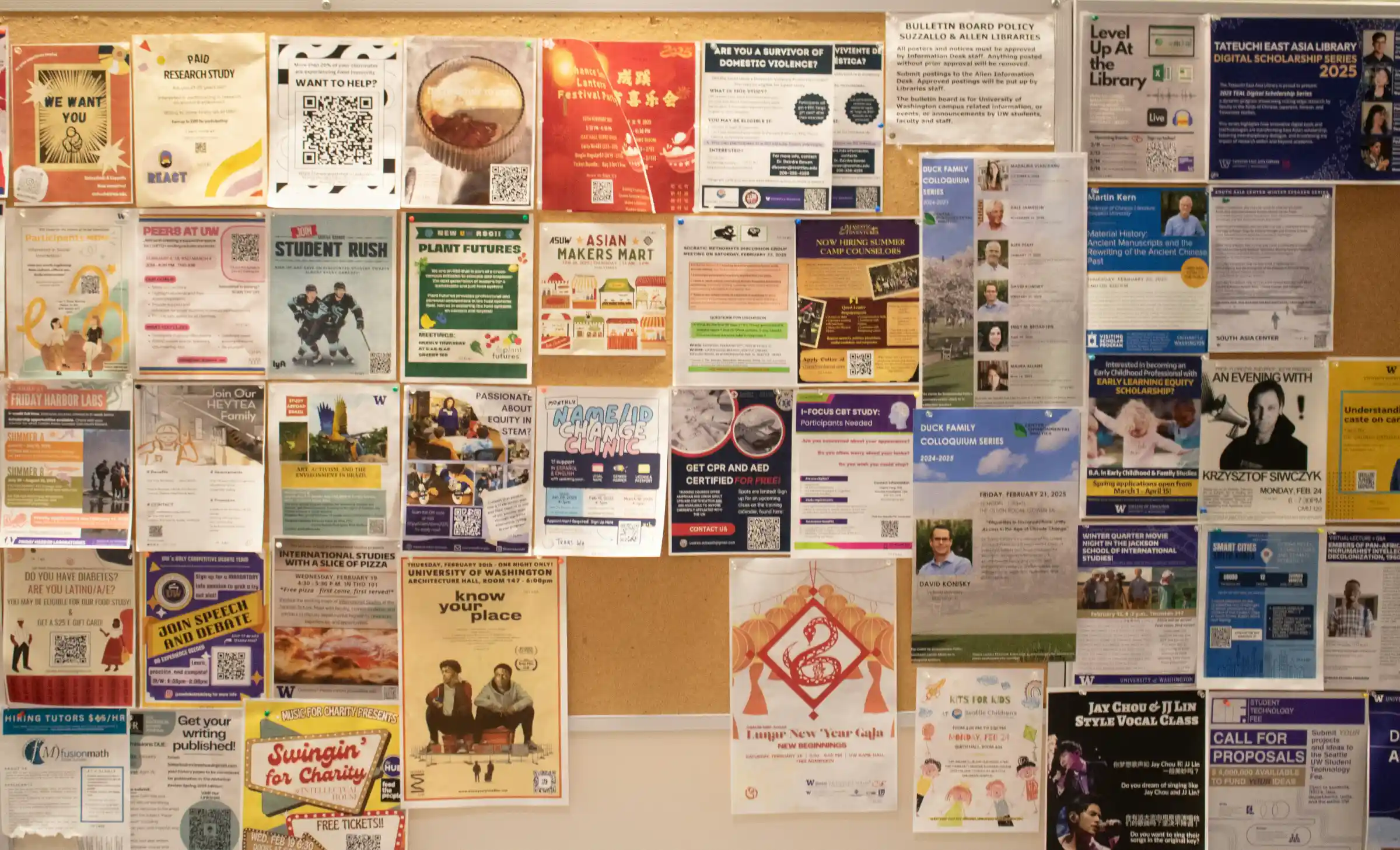10 Good Professional Development Topics for Teachers

Professional development (PD) is a requirement for all educational professionals, including K-12 teachers. With thousands of available options, it’s key to select topics that respond to your exact needs as an educator and that qualify as PD in your state. While training needs to be personalized to the specific requirements of each teacher, there are certain topics of high value that serve many different educators.
Based on the current needs of the US educational system, some good professional development topics for teachers include:
- Classroom Management and Student Engagement: A Must for All Teachers
- Culturally Responsive Teaching (CRT): For Teachers Who Work in Culturally Diverse Schools
- Assessment for Learning: For Teachers That Strive to Improve Their Assessment Techniques
- Blended Learning: For Teachers in Schools That Use a Hybrid Instruction Method
- Educational Technology Integration: For Teachers Who Struggle with New Technologies
- AI in Education: For Forward-Looking Teachers That Aspire to Be at the Top of the Teaching Game
- Supporting Students with Learning Disabilities: For Special Education Teachers
- Trauma-Informed Teaching Strategies: For Teachers Who Want to Offer Better Emotional Support to Vulnerable Students
- Establishing Effective Communication with Parents: For Teachers Who Face Challenges in Communication with Student Parents
- Self-Care for Educators: For Teachers That Work in Districts with High Shortages
To connect with fellow educators from across the nation to provide and receive peer-to-peer professional development, join SimplyPD, the most comprehensive online PD marketplace for educational professionals.
1. Classroom Management and Student Engagement: A Must for All Teachers
By far, the most important topic for teacher professional development that all instructors need to complete is strategies for classroom management and student engagement. These are two of the main components of creating a positive and inclusive learning environment that inspires all students to participate and allows them to benefit from the educational process.
In this course, teachers and teacher aides can obtain theoretical knowledge as well as practical skills on how to set up and enforce strict rules to maintain order in the classroom and retain students’ attention while fostering positive relationships with students. It focuses on interactive teaching methods that combine in-class work with online resources that help engage students in a constructive manner.
The main benefits of PD in classroom management and student engagement include:
- Establishing a positive working environment for teachers and students
- Preventing disruptive behavior and the need for penalties
- Eliminating unnecessary stress for educators, students, and parents
- Building positive relationships between teachers and students
- Boosting academic results
This topic can be a good training for all teachers, but it is particularly beneficial for:
- New teachers who are just joining the workforce and don’t have practical experience in managing a classroom and engaging students
- Mid-career teachers who need refreshing to continue developing their teaching techniques
- Experienced teachers who are running out of creative teaching ideas to implement in the classroom to keep students interested
There are multiple ways in which teachers can access this type of PD training including but not limited to attending conferences, participating in workshops and webinars, cooperating with district peers, observing colleagues in the classroom, and even conducting their own research on what works best in practical terms.
One of the best things about this teacher PD topic is that you can start applying everything that you learn immediately in your own instruction. In this way, you can quickly assess whether the chosen activity is producing the expected results or you might need further assistance in managing different students in the classroom.
2. Culturally Responsive Teaching (CRT): For Teachers Who Work in Culturally Diverse Schools
Another crucial topic that many teachers (and students) can benefit from is related to Culturally Responsive Teaching (CRT), which is similar to Cultural Competence. CRT signifies a teaching method in which educators recognize, appreciate, and make use of the cultural diversity in the classroom and the school. In other words, this training builds awareness of diverse backgrounds to design and implement inclusive instructional practices.
Some specific topics that this general idea for PD for teachers can cover include:
- Culturally Responsive Instruction
- Embracing multiculturalism in the classroom
- Promoting respect for student differences
- Fostering cultural awareness and inclusivity in the classroom
- Cultural diversity in the digital classroom
The most important advantages of training in the field of Culturally Responsive Teaching comprise:
- Bridging the gap between student cultural identities in an increasingly diverse educational system
- Reducing bias inside and outside the classroom
- Promoting a learning environment that is built on respect, appreciation, and collaboration
- Learning about other cultures and identifying the similarities while respecting the differences
- Enhancing student engagement as teaching becomes more closely related to their individual culture
Teachers who would extract the most benefit from this professional development topic are:
- Educators teaching at districts and schools with ethnically and culturally diverse students
- Teachers coming from less diverse backgrounds
- Educators designing curriculum and class plans
Relevant training on this topic can be accessed in many different ways. Teachers can go for more formal options such as college-level classes or online courses. They can also choose more informal training like listening to education podcasts, taking part in online professional learning networks (PLNs), discussing the topic during faculty meetings, or even joining book study groups.
In terms of implementation, educators can use gained knowledge right into their classroom by adjusting their teaching methods in a way that acknowledges and builds upon the diversity of students that they work with. In addition, they can execute school-wide or district-wide projects or initiatives, such as bringing more books on cultural diversity and equity to the library.
3. Assessment for Learning: For Teachers That Strive to Improve Their Assessment Techniques
Another good professional development topic for teachers that can serve various educational professionals is Assessment for Learning (AFL), as opposed to Assessment of Learning. The concept is similar to formative assessment and uses student assessments as a form of feedback on their understanding of a topic and possible ways to improve teaching techniques to produce more positive academic outcomes.
Unlike Assessment of Learning, AFL aims to inform the instructional and educational process to make it more accessible and effective for students based on their unique needs and situations. The key is to implement formative assessment on a regular basis in order to collect real-time feedback from students and enhance your strategies immediately.
The most significant cons of Assessment for Learning professional development courses include:
- Turning assessment into an active component of the learning process
- Providing teachers with a real-time assessment of students’ understanding and further needs
- Allowing educators to adjust their teaching methods right away
- Incorporating both traditional and online assessment methods for increased interactions and student engagements
- Supporting students’ self-assessment and self-reflection
- Boosting student performance and final results on standardized tests
The Assessment for Learning topic is a good idea for:
- Educators who are willing to make their methods more student-centered and student-responsive
- Teachers who feel trapped in traditional assessment techniques that fail to take into account student needs
- Instructors that aim to improve their practices to engage more students more effectively
- Teachers facing poor student performance on standardized tests
Similar to other professional development topics for teachers, AFL can be covered in different ways. Educators can choose from educational conferences and events that handle this subject, formal training, collaboration with the district, serving on educational committees related to this area, and other options.
The newly obtained knowledge can be applied immediately by initiating daily or weekly quizzes and other assessment methods that aim to provide real-time feedback and inform teaching.
4. Blended Learning: For Teachers in Schools That Use a Hybrid Instruction Method
Blended learning is another increasingly important concept that many teachers are not adequately prepared for, so they might need professional development to adjust effectively. Amid intensifying teacher shortages and enabled by newly emerging technology, many districts and schools are switching to blended learning, also known as hybrid learning. This refers to combining face-to-face instruction with online learning practices in a smooth way that boosts academic outcomes for students.
With teacher vacancies exceeding a few thousands in some states, schools need to resort to virtual staffing services, like those offered by Fullmind. This offers them access to high-quality, state-certified educators, and blended learning can give very positive results when implemented effectively. However, teachers and paraprofessionals need professional development support as this is a relatively new area.
In specific, blended learning PD can focus on:
- Flipped classroom techniques delivering instruction online and offering more class time for hands-on learning activities
- Adaptive learning technologies
- Engaging students in digital learning
- Strategies for in-person facilitators
- Effective assessment methods in hybrid learning
This topic provides the following advantages to teachers and schools:
- Enabling schools to benefit from virtual staffing
- Providing districts with a bigger pool of qualified educators to hire
- Offering students more personalized and more engaging learning experiences
- Building students’ digital literacy skills
- Delivering high-quality education in an effective manner
This teacher PD topic is best for:
- K-12 in-person facilitators working with remote teachers
- Online instructors working with whole classes and individual students
- Educators from schools applying blended learning models
- Teachers who are behind on the use of technology in the teaching process
Most professional development service providers touch on the topic of hybrid learning in one way or another, mostly because it is largely considered the future of education. Teachers can take formal courses, discuss best practices in in-person or online professional learning communities (PLCs), listen to education podcast episodes on the topic, and more.
Hybrid learning skills can be applied immediately even in classrooms that don’t use virtual staffing. In specific, instructors can adopt the use of online educational materials and resources, introduce educational apps, and conduct online assessment methods to make learning more interactive and more impactful.
5. Educational Technology Integration: For Teachers Who Struggle with New Technologies
Integrating educational technology (EdTech) in the teaching and learning process is another crucially important PD topic with the potential to improve the skills of many K-12 teachers and other educational professionals. Educational technology integration refers to the strategic deployment of digital tools, apps, platforms, and other resources in the educational process to make it more interactive, engaging, and relevant to 21st century students. In addition to making learning more effective, it can also make teaching less demanding and easier, benefiting both students and teachers.
Some related topics that teachers can explore in their professional development activities include:
- Leveraging gamification in classroom instruction
- Personalized learning with the help of technology
- Digital assessment methods
- Cybersecurity for teachers and students
- Incorporating digital citizenship education into the school curriculum
- Ensuring digital equity and inclusiveness
The most considerable advantages of EdTech integration training for teachers are:
- Facilitating class preparation
- Providing students with unlimited learning opportunities
- Customizing educational materials and processes to the specific needs of a diverse student body
- Getting students ready for higher education and career in a digitized world
- Boosting student engagement and commitment
The main beneficiaries of this teacher professional development topic are:
- Teachers aiming to keep their classroom up to date on recent trends in education
- Traditional instructors who lack the necessary knowledge and skills to use technology efficiently and safely in the classroom and outside of it
- Educators working with students with diverse skills and talents who would benefit greatly from individualized learning and instruction
While most of the best professional development providers for teachers offer some sort of training related to the integration of technology in the educational process, it is important to select those that emphasize digital safety for both educators and their students. EdTech opens a whole new world of opportunities for teachers and students, but it comes with a high potential for different types of frauds and hazards that all stakeholders need to be familiar with and know how to avoid.
With regards to implementing EdTech integration, it can be immediate. You can start testing different educational websites and apps while you are still being trained to see which ones are the best fit for your classroom. The top teacher perks available to educators nationwide include free or very discounted access to a wide range of technology that can ease the teaching process.
6. AI in Education: For Forward-Looking Teachers That Aspire to Be at the Top of the Teaching Game
Another good topic, closely related to the one just discussed, is the use of AI in education. Artificial intelligence (AI) is a specific type of technology that has a strong potential to improve the educational process as long as it is used correctly and within limits by educators who know how to take advantage of it without replacing all human thoughts, processes, and interactions with AI ones. Thus, it’s very important that forward-looking teachers who’d like to offer the most modern education to their students attend professional development activities that teach them how to do this correctly.
Specifically, AI-driven technology can help educators offer customized learning routes and experiences, encourage students to explore their interests and talents, speed up the class preparation and assessment process, and make data-based decisions. In this way, teachers can increase their efficiency and productivity to avoid burnout while boosting the quality of education that students get through personalization.
In sum, the main benefits of learning how to use AI in education as a form of teacher professional development include:
- Making processes easier and faster for teachers and other educators
- Avoiding teacher exhaustion
- Allowing teachers to handle larger classes without experiencing burnout
- Providing differentiated instruction to students with diverse needs and skills
- Supporting students with learning difficulties through personalized educational content and materials
- Helping students develop their unique talents
The right candidates for this topic are:
- Teachers with good background in educational technology as AI is a more demanding extension of this
- Instructors who are eager to use the latest tech in their methods
- Educators who might be falling behind and need to optimize their processes
AI in education is a more specialized topic for professional development, so it’s recommended for interested teachers to look for college or university courses or online courses provided by reputable companies. It can also help to start by discussing experiences and practices with school and district colleagues as well as in online teacher groups to find the best available PD resources on the topic.
The implementation of anything that you learn during your AI technology training can be immediate, and you can expect to see the first results right away. After all, there are dozens of AI-based educational tools designed to help teachers in specific.
7. Supporting Students with Learning Disabilities: For Special Education Teachers
Another important topic to incorporate in teacher professional development is supporting students with learning disabilities. As part of special education training, this topic is very diverse and can accommodate a wide range of concepts depending on the specific needs and difficulties of the students that you work with. It’s crucial for any school to have special education educators and to keep their skills up to date in order to serve students with learning disabilities in the most efficient and effective way.
Some popular and beneficial subtopics for teachers working within special education comprise:
- Implementing instructional accommodations and modifications for students with special needs
- Learning differentiated teaching techniques
- Using assistive technology
- Supporting students with dyslexia
- Fostering self-advocacy in students with learning disabilities
- Embracing diversity in the classroom
- Communicating with and supporting the parents of students with disabilities
Being trained in providing targeted support to students with different learning disabilities brings the following benefits:
- Establishing a learning environment where all students can thrive and succeed academically, regardless of the challenges they face
- Improving the graduation rate of students with learning disabilities
- Boosting the confidence level of students in need of special education
- Building a culture of understanding and support among all students to serve them beyond school
- Removing the stigma surrounding students with disabilities
Professional development on this topic provides the most value to:
- Special education teachers
- All K-12 teachers so that they can create more inclusive and supportive classrooms for all students
- Instructors who have no previous experience or training in helping students with learning disabilities
Professional development in working with students with learning disabilities is rather specialized and needs to be handled with care. Interested educators are advised to enroll in formal courses, attend special conferences, and participate in webinars on the topic. Collaborating with more experienced teachers at school or in the district can also prove helpful.
The use of newly acquired techniques and teaching methods should be implemented carefully. Teachers should accommodate their style to the specific needs of each student with learning disabilities.
8. Trauma-Informed Teaching Strategies: For Teachers Who Want to Offer Better Emotional Support to Vulnerable Students
Another good professional development topic for teachers is strategies for trauma-informed teaching. While this might sound like a very specific area, trauma can come in many different forms and affect a large percentage of students, which makes this topic a much needed one to help educators better serve the needs of students who have experienced various kinds of trauma. Trauma-informed teaching takes into consideration the ways in which trauma might affect student behavior at school and the learning process.
As part of teacher professional development in trauma-informed teaching, educators get access to strategies and methods to help create a safe, understanding, and supportive environment for students who have undergone trauma. Learning how to make students feel safe, appreciated, respected, and taken care of is a crucial part of the training as it helps reverse negative behaviors that occurred as a result of trauma, promote engagement, and enhance learning outcomes.
Some of the many benefits associated with developing your skills in trauma-informed teaching include:
- Improving students’ ability to concentrate during class, manage their emotions in a positive way, and re-engage in learning
- Turning the entire student body into a source of a supportive and encouraging environment
- Enabling student resilience and emotional well-being in the face of different types of trauma
- Communicating effectively with the parents of trauma victims
This teacher PD topic is best for:
- Really, all K-12 teachers as any student might be subjected to trauma and struggle with it
- Instructors who have not been trained in providing emotional support to students
- Educators who are aspiring to offer true support to their students for the best emotional and academic outcomes
- All teachers who realize that education combines instruction with emotional support
Educators can receive professional development in trauma-informed teaching in many different ways. Specialized seminars and webinars can be particularly effective as can be joining professional learning communities and book study groups.
Once they have been trained to recognize the signs of trauma, teachers are likely to see that many more students than expected have actually suffered from it and need assistance. It’s likely that you will be able to start implementing your new skills right away.
9. Establishing Effective Communication with Parents: For Teachers Who Face Challenges in Communication with Student Parents
A good, yet frequently overlooked idea for teacher PD activities is strategies for establishing more effective and productive communication with parents. Though parents are one of the three key players in the educational process, professional development that aims to help improve collaboration with them is usually ignored. Still, effective communication between parents and teachers has the potential to build strong, cooperative collaborations between families and educators that together enhance success for students. Ongoing updates on student progress, regular information about learning plans and curriculum, open dialogue, and mutual respect are the basis for productive communication that ensures that parents are actively involved in supporting student education.
Some specific topics that can be addressed as part of professional development in this regard include:
- Making the most of parent-teacher conferences
- Engaging families throughout the educational process
- Partnering with parents from different backgrounds to benefit students
- Addressing parents’ concerns in an effective manner
- Using the best technology tools to facilitate and control communication between parents and teachers
The most important pros of this teacher PD topic are:
- Building a comprehensive, positive, and supportive learning environment that goes beyond the school borders
- Ensuring that learning continues at home
- Improving student behavior inside and outside the classroom
- Finding alternatives to suspension for students who need it
- Boosting the overall results of the educational process
Teachers who would benefit the most from this PD activity include:
- Teachers who find it challenging to communicate effectively with parents
- Educators working in schools and districts with diverse population where different cultural backgrounds and languages might impose communication barriers
- Special education teachers
- Eventually, all educational professionals as effective communication between teachers and parents would benefit all parties
Teachers can up their skills in communication with parents in many different ways. Serving on educational committees, enrolling in online courses, collaborating with peers, and getting support from professional learning networks can all prove highly effective in this regard.
As soon as you start developing your communication skills, you can start applying them to your interactions with parents. Indeed, you can actively search for opportunities to connect more efficiently with parents by starting to send regular updates and organizing parent-teacher conferences.
10. Self-Care for Educators: For Teachers That Work in Districts with High Shortages
Finally, another excellent topic for teacher professional development is self-care for educators. After all, PD should equip teachers with the knowledge and skills they need to not only better serve students and schools but to take proper care of themselves to avoid exhaustion and burnout, which are frequent occurrences in the profession and a leading cause of teacher shortages.
Self-care training can provide educators with the skills and tools to intentionally work on their physical, emotional, mental, and psychological well-being. It includes practices and strategies to manage stress, establish a good work-life balance, and avoid burnout. Self-care for teachers can involve introducing new routines to your daily schedules that restore your well-being amid various crisis situations at the workplace or outside of it.
The benefits of this teacher professional development topic are crucial, encompassing:
- Reversing teacher exhaustion and preventing burnout
- Successfully managing inevitable stressful situation and coming out of them with more positive results
- Increasing job satisfaction
- Acting as an effective teacher retention strategy
- Alleviating the problems of teacher vacancies and teacher shortages as fewer teachers would leave and more graduates would feel encouraged to join the profession
- Building more positive and collaborative relationships with students and parents
- Enhancing the quality of education for students
The best fitting candidates for this type of PD include:
- Educators serving districts and schools with disproportionately high teacher shortages that need to consistently overwork
- Teachers working with large classes and instructing additional classes
- Educators involved in multiple extracurricular activities
- All teachers who are feeling early signs of burnout
Professional development in self-care for educators can take many different forms and can be provided in various formats. Faculty meetings can be dedicated to this topic; educational workshops and seminars focusing on this subject can be attended; and online classes can be checked out.
With regards to implementation, it’s as easy as it gets. As soon as you’ve learnt a new strategy to maintain your well-being despite the demanding nature of the profession, you can add it to your daily routine.
Bottom Line
Educators should conceive of professional development not as an obligatory requirement for a state license renewal, but as a valuable opportunity to gain new knowledge, learn new strategies, and develop new skills to maintain their well-being. While PD can cover many different areas, these 10 ideas are really good professional development topics for teachers. They serve the needs of many educators and can be easily implemented in their routines.
To access endless professional development opportunities provided by peers, join SimplyPD. This is the most comprehensive online marketplace for teachers and education leaders offering and seeking PD.
For Education Leaders
Get proven strategies and expert analysis from the host of the Learning Can't Wait podcast, delivered straight to your inbox.
Let’s Work Together
We’ll review your application and get in touch!






.webp)




.webp)
.webp)



.webp)



.webp)
.webp)


.webp)
.webp)
.webp)











































.webp)



%20.webp)






















